MIHO's Healthy Smile Life
from webWD
顎関節症とは何か?
What is TMJ (orTMD)?
https://www.webmd.com/oral-health/ss/slideshow-tmj-tmd-overview
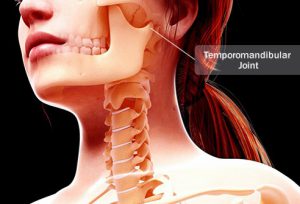
What Does It Stand For?
TMJ is short for temporomandibular joint.
url
There’s one on each side, and they attachyour jaw to the bottom of your skull.
The muscles near them let you to open and close your mouth.
But sometimes, the joints get out of line or don’t move as they should.
You might have heard that problem called TMJ, but it’sactually TMD — temporomandibular joint disorder. Up to 15% of adults, mostly ages 20 to 40, have it.
It happens more in women than in men.
TMJとは何の略?
TMJは顎関節の略です。 顔の両側に1つずつあり、あごを頭蓋骨の底に接着させています。顎関節付近の筋肉が、口を開閉させています。しかし時々、接合箇所はラインから外れたり、本来の動きをしないことがあります。 TMJと呼ばれるその問題を聞いたことがあるかもしれませんが、 実際にはTMD (temporomandibular joint disorder)です – 顎関節症のことです。成人の最大15%、主に20歳から40歳までにその症状がみられます。 顎関節症は男性より女性の方によく起こります。
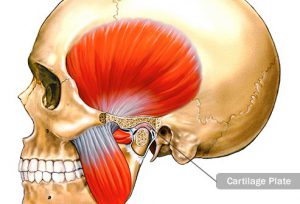
Up and Down and All Around
The temporomandibular joint is one of the most complex joints in your body.
url
It’s a sliding hinge that lets your jaw move up and down, side to side, and back to front.
In addition to the bones and muscles, there’s also a small piece of cartilage (firm tissue) that acts like a shock absorber and protects your bones from wear and tear.
上に下に、周囲ぐるっと
顎関節は あなたの体の中で最も複雑な関節のひとつです。 それは顎を上下左右、後方から前方に動かすのを可能にするスライドヒンジ(蝶つがい)です。骨や筋肉に加えて、 小さな軟骨片(硬い組織)もあります。 それは緩衝材のように機能し、摩耗からあなたの骨を保護します。
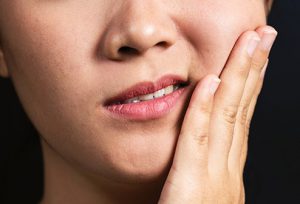
Symptoms of TMD
If you have temporomandibular joint disorder, you might have:
- Pain in one or both of your jaw joints
- Earaches
- Pain when you chew
- Pain in your face or neck
- Stiff muscles in your jaw
- A change in how your teeth fit together
If you hear a clicking or a popping sound, that isn’t a sign of TMD unless you have other symptoms, like pain, along with it. Many people’s jaws make noise when they open their mouths.
url
顎関節症の症状
顎関節症には以下のような症状が現れます。
- 片方または両方の顎関節の痛み
- 耳痛
- ものを噛むとき痛む
- 顔や首の痛み
- あごの筋肉が硬い
- 歯の噛み具合の変化
カチッという音やはじけるようjな音がしても、痛みなどの他の症状がない限り、それはTMDの兆候ではありません。口を開くと、多くの人の顎が音を立てます。

What Causes It?
It’s not always clear what brings on TMD.
The most common culprit is when the piece of cartilage in the joint slips out of place.
Other things that can cause it include:url
- An injury or dislocated jaw
- Teeth or jaws that aren’t lined up right
- Grinding your teeth
- Arthritis, which can damage the cartilage in the joint
顎関節症を引き起こす原因
TMDの原因は必ずしも明らかではありません。 最も一般的な原因は関節にある軟骨の一部分がずれていることです。 その他の可能性としては:
- けがや脱臼
- 正しく並んでいない歯や顎
- 歯ぎしり
- 関節の軟骨を傷つける恐れがある関節炎
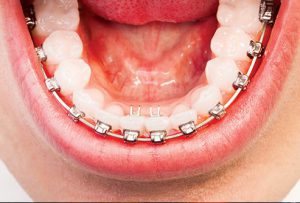
Is It My Braces?
Many people believe their braces or other orthodontic treatments that straighten your teeth and realign your bite can cause TMJ trouble.
But there’s no research that suggests braces bring it on.
url
ブレースが原因?
多くの人が、自分のブレースまたは歯列や咬合を整える他の歯科矯正治療が、TMJのトラブルを引き起こす可能性があると信じています。しかし、ブレースが顎関節症を引き起こすことを示唆する研究はありません。

How Is TMD Diagnosed?
If you have symptoms, your doctor or dentist will look for signs of irritation or inflammation in your jaw, listen for clicking or grinding noises, and test how far your jaw can move in any direction.
You might also need X-rays or another type of imaging scan to help your doctor get a clear picture of the joint.
url
顎関節症はどのように診断されるのか?
症状がある場合 あなたの医者もしくは歯科医は、顎の炎症の兆候がないか、またクリック音や粉砕音がないかをチェックします。 そして顎がどの方向にどの程度動くことができるかを検査します。X線での検査、または関節の鮮明な画像を撮ることができる別のタイプのイメージングスキャンを受ける必要があるかもしれません。
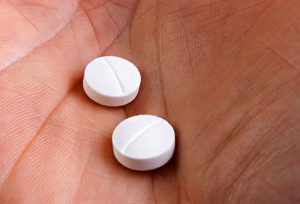
Treatment
Your doctor or dentist probably will recommend things you can do easily.
They might include:
url
- Take over-the-counter pain relievers.
- Put hot or cold compresses on your jaw.
- Eat softer foods.
- Limit your jaw movements when possible.
- Do exercises to stretch and relax your jaw.
- Don’t chew gum or your nails.
治療
お医者さんや歯医者さんは簡単にできることをお勧めするでしょう。
例えば:
- 市販の鎮痛剤を服用する
- あごに熱いまたは冷たい湿布を貼る
- 柔らかい食べ物を食べる
- できるだけ顎の動きを制限させる
- あごを伸ばしてリラックスさせる運動をする
- ガムや爪を噛まない

Take It Easy
Grinding your teeth or clenching your jaw, which people tend to do when they’re stressed,can cause these jaw problems.
Your doctor or dentist might recommend ways you can lower your stress.
url
Exercise, meditation, or hobbies can help.
Or you might benefit from talking with a psychologist or counselor.
気楽にいきましょう
歯ぎしりをしたり食いしばりは、ストレスがある場合に起こりやすいのですが、これらが顎の問題を引き起こす可能性があります。お医者さんか歯科医さんは、ストレスの軽減方法を推薦するかもしれません。運動、瞑想、または趣味が役に立ちます。 あるいは、心理学者やカウンセラーと話すことで効果を得られるかもしれません。
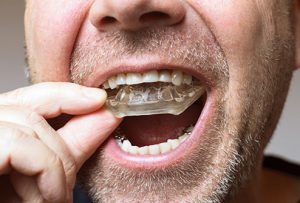
If That Doesn’t Help …
If you still have issues with TMD,your doctor might recommend one or more of the following:
url
- Prescription painkillers or muscle relaxers
- A plastic mouth guard to protect your teeth if you grind them (you usually wear this at night)
- Braces to fix an uneven bite
- Shots of anti-inflammatory medicine, like steroids, into your jaw muscles to help with pain
それで効果がないのであれば・・・
顎関節症の症状が軽減されなければ、お医者さんは以下の方法をお勧めするかもしれません。
- 処方鎮痛剤または筋弛緩剤
- 歯ぎしりがある場合は、歯を守るプラスチック製のマウスガード (通常夜間に装着します)
- 不均一な咬合を直すためのブレース
- 痛みを和らげるために、ステロイドのような抗炎症薬を顎の筋肉に注射します。
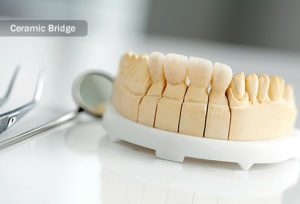
Dental Work
You might need a procedure to fix the issue:
url
- Crowns or bridges can reshape your bite.
- Your doctor can file your teeth so your mouth closes evenly.
- Arthrocentesis: Scar tissue caused by an inflammatory illness, like arthritis, is cleaned out.
- Arthroscopy: Your doctor uses a tube to guide small surgical instruments into your jaw joints.
- Low-level laser therapy: Infrared light sent toward the joint and nearby tissues help with pain.
歯科ができること
問題を解決するための手順が必要な場合があります。
- クラウンやブリッジは咬合を再形成することができます
- 口が均等に閉じるように、医者は歯を削ることができます
- 関節穿刺術:関節炎などの炎症性疾患による瘢痕組織を除去します
- 関節鏡検査:医師はチューブを使って小さな手術器具を顎関節に導きます
- 低レベルレーザー治療:関節や近くの組織に向けて送られる赤外線は痛みを緩和します

Surgery
If you have a serious issue, like a structural problem in your joint, you might need surgery.
url
Your doctor would open up the joint to fix the problem or, in some cases, replace the joint.
外科手術
関節に構造上の問題のような深刻な問題がある場合は、 あなたは手術が必要かもしれません。 お医者さんは関節部を切開して問題を解決します。場合によっては、関節を交換します。

